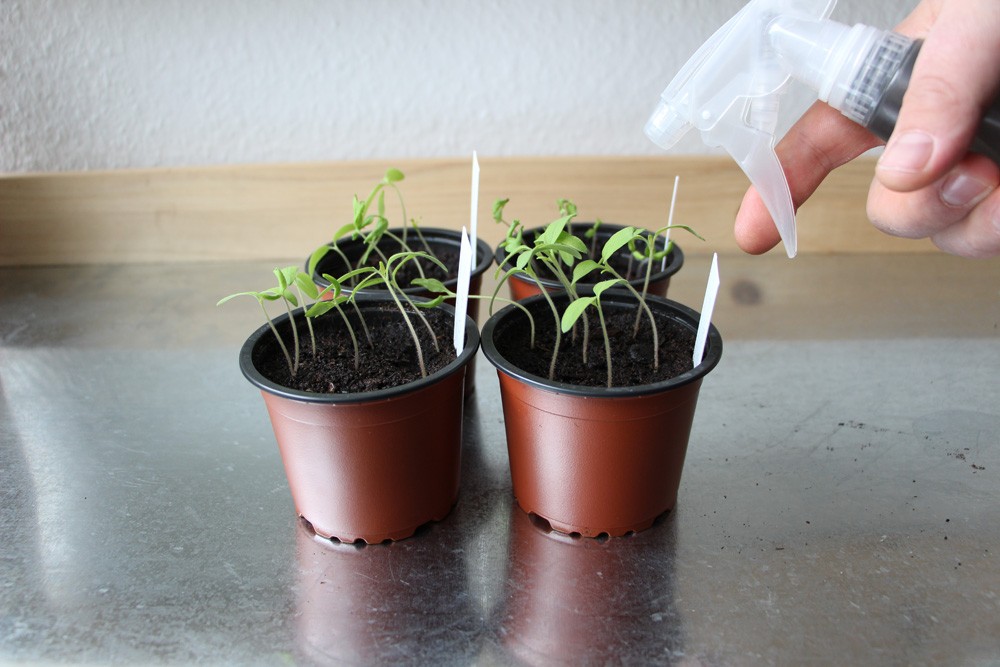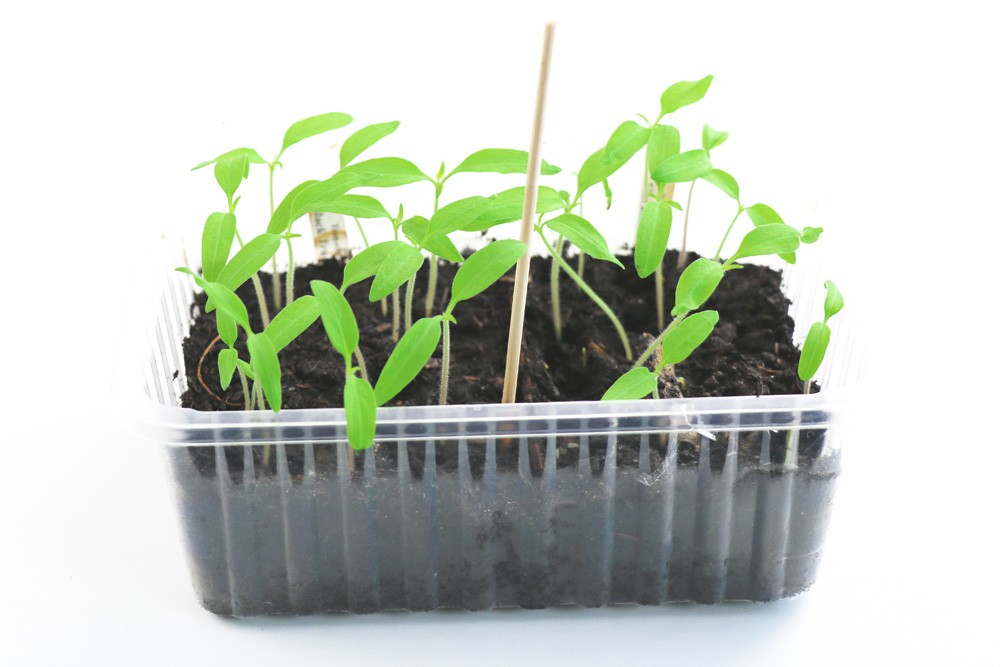Sowing tomatoes is basically easy, yet it can happen that the seeds are reluctant to germinate. Read here how you can make the germination period as short as possible!
If you want to sow tomatoes yourself, you don’t necessarily need a green thumb. Because with a little background knowledge, you can grow magnificent crops from tomato seeds. The germination period itself takes only about two weeks – provided that the optimal conditions are created. For it may well happen that the seeds do not germinate or germinate slowly. However, this can usually be attributed to certain factors, which we explain in more detail in this article.
Contents
Optimal conditions
The average germination period of tomatoes is about 10 to 14 days. In order for the seeds to actually germinate in this time, however, the optimal conditions must be created. This is because the germination period of tomato seeds depends on various factors:
- Preparation
- Temperature
- Light conditions
- Climate
- Care
Seed preparation
Seeds for tomatoes can be purchased both in specialized stores, but also obtained from ordinary tomatoes themselves. In any case, it should be stored in a dry place and first checked for its germination. If it is ensured that the seeds are still germinable, they can be sown as usual. Alternatively, however, it is also possible to prepare the seeds for sowing and thus shorten the germination period. Different methods are available for this purpose:
- Place seeds in lukewarm water overnight and allow to swell.
- Place seeds in lukewarm chamomile tea for 6-8 hours
- Soak seeds in garlic broth for 2-3 hours.
Tip: To make garlic broth, puree two cloves of garlic and dissolve overnight in about 10 liters of water. Then strain the broth and soak the tomato seeds in it.
Temperature
The temperature has an important influence on the germination period and should definitely be taken into account. Since it is usually too cold for outdoor sowing in our regions, tomatoes are usually sown in a protected indoor area. The advantage here is that the temperature can be regulated indoors. This is because the germination period is already extended by a few days if the temperature falls below the ideal temperature for germination of tomatoes:
- ideal temperature: 20-24 degrees.
- old tomato varieties like it warmer
- maximum temperature of 30 degrees possible
Warm and humid microclimate
In addition to the temperature, the climate is of course also crucial for the germination period. Tomato seeds germinate best in a warm and humid microclimate, which can be achieved particularly well with a mini-greenhouse. Alternatively, however, it is also possible to simulate this climate by covering the growing container.
- Do not close the container completely
- Remove the foil daily
- Air can circulate
Tip: A conventional transparent film is particularly suitable for covering. On the one hand, it is easy to remove and on the other hand, it allows you to have a look at the seeds at all times.
Light
Sufficient light is essential for the germination of tomato seeds, which is why the tomato seeds should be placed in as bright a location as possible. For this purpose, for example, a place on a windowsill above a heater is suitable, but the blazing midday sun should be avoided. If there is no location with sufficient light, the seeds can of course be exposed with special plant lamps. There are considerable differences in plant lamps, but the device should meet the following requirements:
- Light is incident in the blue and red spectral range.
- Illuminance must be sufficiently strong
- Light spectrum must be strong enough
- lamp should not get too hot
- LED lamps are best suited
Note: LED lamps are usually priced a little higher, but the price is worth it. LED lamps do not get too hot, provide a lot of light and require very little energy.
Watering

Yes, the tomato seeds also need regular watering and in no case should dry out! If the seeds are not regularly moistened, it is highly unlikely that healthy plants will develop from them. It is therefore essential to keep the seeds moist at all times. Here, however, some tact is required, because the seeds should of course not be watered too much. It can also happen that the seeds are washed away during conventional watering. The seed is therefore best moistened as follows:
it is best to moisten with a spray bottle
or place containers a few cm deep in water bowl
Avoid waterlogging at all costs
Soil should always be moist, but not wet.
Tip: If you want to water the seeds in the conventional way from above, you should take care not to use too strong a jet. For this purpose, there are also special watering attachments, which you simply put on the watering can.


